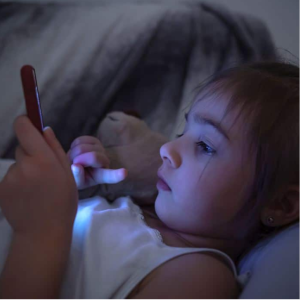Are smartphones bad for sleep

Smartphones aren’t bad for sleep alone, but your behaviour and usage patterns could negatively impact your sleep quality.
There are a few reasons for this:
- The blue light emitted by smartphone screens can suppress your body’s melatonin (sleep hormone) production
- Using your smartphone before bed can keep your mind active and alert when it should be winding down
- Constant connectivity can create anxiety about missing messages and updates and feed a pattern of continuous scrolling
- A lack of control over news delivery on browsers and social media can lead you to upsetting and anxiety-fuelling stories
- Shopping apps create fear of missing out (FOMO) and can have you constantly looking for deals and offers
But it isn’t all bad – your smartphone can also help you drift off by playing white noise, meditate to relax before bedtime, and read this article for sleep tips. The key is mindful usage, especially in the hours leading up to bedtime.
Join us below to learn more about smartphones and sleep.
How smartphones are bad for sleep
Smartphones are distraction machines that occupy your mind – completely – for the duration of your session.
The trouble is that they emit blue light, disrupting melatonin production. Even with a night filter, they can still stimulate your brain and make falling asleep more difficult.
Screen time also actively stimulates the brain, preventing your mind from relaxing, while notifications interrupt sleep throughout the night.
Checking messages increases anxiety before bed, and late-night scrolling reduces total sleep time. Before you know it, hours have passed!
Social media causes FOMO while resting, and you’ll probably be scrolling endlessly for new updates on things that don’t matter.

Pictured: Young girl, using a mobile device in bed, researchers studying blue light found that blue light suppressed melatonin, causing sleep problems.
Smartphones aren’t all bad news
Of course, smartphones aren’t inherently bad for sleep—it’s excessive usage and the timing of your usage that disrupts sleep.
Your smartphone can actually help you sleep by teaching you relaxation techniques, helping you choose a comfortable mattress, and making it easy to control your bedroom lighting and temperature.
The trouble lies in excessive usage and smartphone addiction, where you can’t help but pick up and go on your smartphone.
A digital addiction
Your brain can become addicted to smartphone activities because they trigger your reward systems. This phenomenon is known as behavioural or “digital addiction,” and it’s one of the biggest problems with smartphone usage.
The way you get addicted is simple – smartphone activities like scrolling, shopping, and messaging trigger the release of dopamine. This neurotransmitter satisfies the pleasure and reward system in your brain.
Social media and shopping companies know all about it, so they use algorithms that provide unpredictable rewards, similar to slot machines, which can be highly addictive.
Smartphones are also convenient coping mechanisms for stress or boredom, reinforcing the habit of becoming a seemingly crucial part of your life.
Kicking your bad smartphone habits
Kicking your smartphone for good isn’t the way to deal with excessive usage—a better solution is to put your smartphone in flight mode at night and limit your screen time during the day to control your usage.
For instance, Android has a feature called Digital Wellbeing, which provides information about how you spend time on your phone, like how often you unlock it and how long you use each app. You can then use app timers for control.
It’s also crucial to replace your smartphone with another vice. Reading a book or taking up a hobby will distract you and wean you off your smartphone.
Your hobby could be painting Warhammer, knitting blankets, gardening, or something more technical like 3D printing – anything to keep you occupied.



